Injective Protocol Trading as a Public Utility and Future Exchange
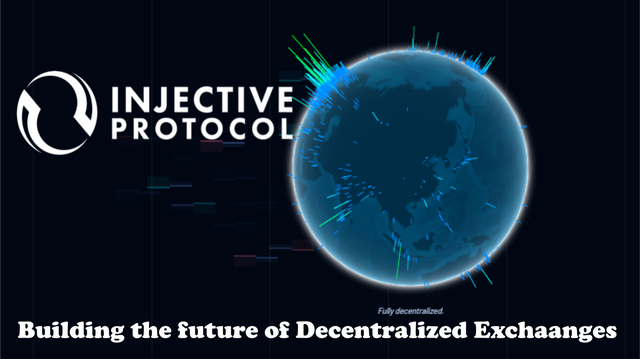
I have read so many things about the injective project and got an idea of what are they going to do with their business model. First of all, we much know basic facts about injective protocol. So let's take a look about it.
Injective Protocol
Injective Protocol is a decentralized end-to-end protocol allowing that swaps between cryptocurrencies, futures, margin and spot trading. The injective protocol has built its own fully trust, public, transparency of protocol.
A derivatives protocol is an important "weapon" of Injective. It is an open protocol that supports the development of open derivatives markets. It is also the world's first fully decentralized P2P futures and perpetual swap contracts exchange, which supports simple access to various markets.
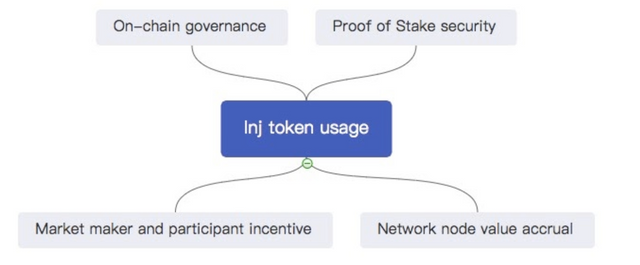
According to the team, compared with other products of the same type, Injective is the fastest, fully decentralized derivatives trading platform without gas fees in the DeFi market.
Internet finance and the digital age
In just two decades, the internet has gone through three ages
The age of the portal (Web 1.0)
The age of search/social (Web 2.0)
The age of the internet (Web 3.0)
about 300 years ago during the industrial age, people were working endlessly to increase productivity and efficiency on machines to manufacture from steam engines to automobiles; the keywords were mass production, automation with machines, and efficiency optimization for maximized profitability.
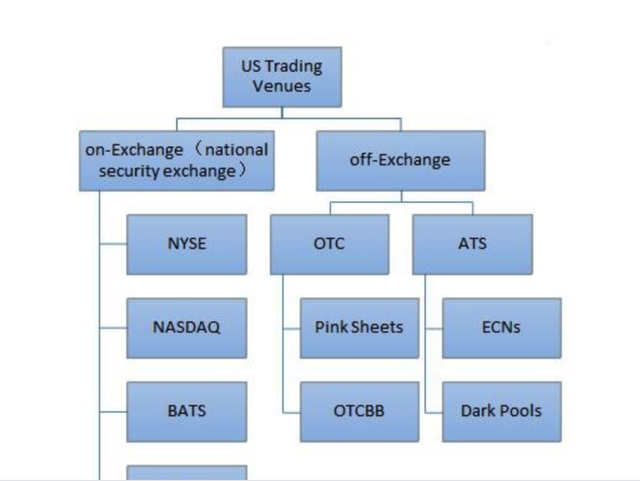
Now everything has changed, and the passing of time seems to be even faster as we witnessed the iteration of technologies.
Now as things and people get connected and integrated into an "unseen network," the characteristics of blockchain decentralization or however you call it, have become extremely incentivizing for people to act and innovate upon.
Specifically, works have been done on all layers of the internet from, again, data productions, storage, to applications (dApps), and of course along with all the innovations come with innovative business models and even "token economies.
Among the diverse applications of blockchain technologies, Defi, or decentralized finance has been one of the most hyped recently given the room of imagination and schemes like liquidity mining. Traditionally even though we did see the boom of internet finance in the past years ranging from payments, crowdfunding, neo-banks, P2P lending and more, however, non has provided the current anticipation of "evolution" but instead just "iteration," as they did not really change the rules and systems
Condition of exchanges
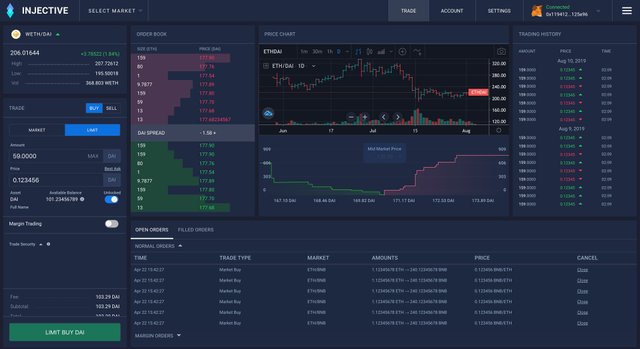
the exchange medium and platform have been of top importance throughout financial history. The medium has gone from shells, stones, and metals to paper and now digital numbers to our eyes. The platform has evolved from the physical markets to the electronic stock trading systems and exchanges and more.
Digitalization and "internalization" are the new focuses. In the past decade, since Satoshi Nakamoto invented Bitcoin, the exchange medium and platform have again shifted from centralization to decentralization. After the ICO hypes in 2017, the tokenization of assets has grown popular and now towards better maturity.
At the same time, various digital asset trading and exchange platforms also utilize blockchain technology to achieve decentralization, hinting a promising future for internet finance and exchange as a function itself.
The development and current status of traditional exchanges
trading platform with diverse products, which provides price discovery and liquidity for traded products.
Technological advancements have facilitated and effected also the business model and infrastructure of the exchanges. Not many people stand in offline market places and shout out the prices of their goods to attract buyers nowadays, but try to get their goods sold through electronic trading systems.
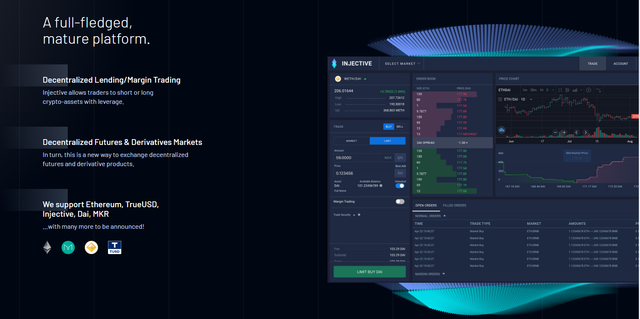
In terms of the business model, most exchanges in Europe and the United States have gone from membership-based to form for-profit companies.
The development of exchanges based on blockchain technology
With the application of blockchain technology in asset tokenization and the trading of it, many digital asset exchanges have emerged, such as Binance, Coinbase, Bitmex etc.
These well-known exchanges are also classified as centralized exchanges in the blockchain and digital asset industry.
Centralized exchanges, as the name suggests, means that the assets deposited by the users are stored in the hands of the exchange owners, and matching of trades and even prices of products are subject to centralized controls operated on centralized servers.
In other words, we, as users, do everything on the platform based on our trust in the team and institution running it.
Centralized Exchange
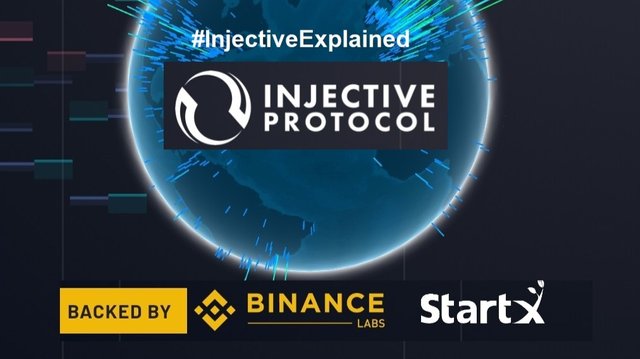
Centralized trading platform for the first time, you need to complete the registration required by the centralized exchange and KYC.
Upon different levels of tasks completion, you will have the permission to deposit, withdraw, trade, and more.
- Deposit
Deposit a certain amount of assets from other exchanges or your own wallet to the newly registered centralized exchange.
It should be noted that the address to receive the deposit is assigned to you by the centralized exchange, and thus you do not have the private key to this address.
- Withdraw
to withdraw assets away from the exchange, you are subject to centralized risk control conducted by the exchange persons as you do not have control of the address.
It is usually the case that you will need to complete the highest level of KYC. Further, the release of your assets is completely subjected to the permission and execution of the exchange staff.
- Trading
This is where it gets interesting as well when you make a trade, all transaction-related data and record are stored on the exchange's server, on some of the exchanges, the settlement of a transaction does not even take place, and for most, you do not have access to their back-end and therefore if there is any dispute on a transaction/order, you probably would not have any edge arguing with a centralized exchange.
Decentralized Exchange
DEXes are different because of the diverse public blockchains they are based on and their respective concepts and technologies. Here we only discuss the decentralized exchanges pertaining the general traits.
One of the key aspects of decentralized exchanges is that the exchange accounts equate to smart contract accounts. In brief, storing assets on DEX is to store them in smart contracts which is to store them in codes, and in codes you trust.
Commonly, most DEXes will only ask for registration (some even require KYC, and it has been criticized for a platform to call itself a DEX whilst asking for KYC), and to deposit, withdraw, and trade:
Deposit
you deposit by transferring your assets into the smart contract address assigned to you by the platform.Withdraw
directly withdraw to anywhere directly from the smart contract address.Trading
your asset is transferred from the smart contract address directly to that of your counterparty. This transfer can be checked on the blockchain through blockchain browser, and the entire transfer process relies on smart contract's automatic execution by codes.
Thank you see you in another one!
Official Website: https://injectiveprotocol.com
Bounty Link : https://bitcointalk.org/index.php?topic=5256993
Telegram: https://t.me/joininjective
Whitepaper Link: https://docsend.com/view/zdj4n2d
Github: github.com/InjectiveLabs
Twitter: https://www.twitter.com/@InjectiveLabs
Reddit: https://www.reddit.com/r/injective